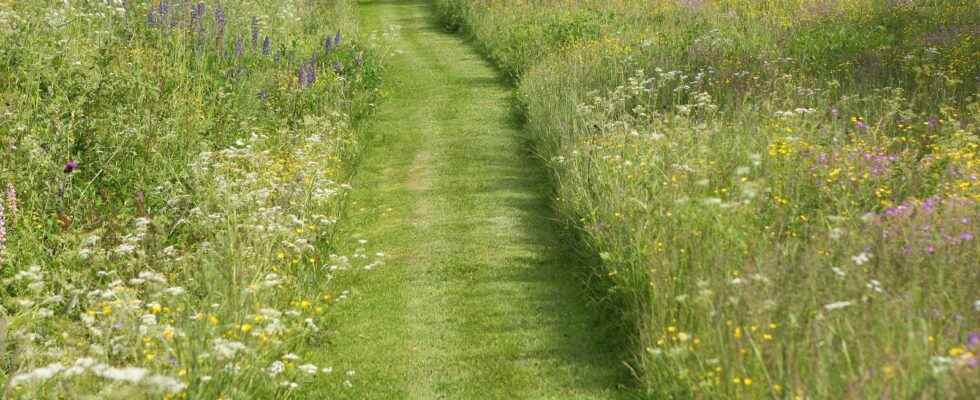Should you mow your lawn? Here’s a good question. While some gardeners regularly mow their lawn to maintain a perfectly clean green expanse, others advocate wild grass to preserve biodiversity.
With the arrival of spring, the comings and goings of clippers in the gardens will begin. It’s nice to find your lawn well shavedready to welcome the children and the gardener but the wildlife and flora suffer seriously. Why would the gardener change his habits to no longer mow his lawn?
Five good reasons to stop lawn mowing
- Lawn, a favorite place for nests
Tall lawns are perfect for hosting nests different inhabitants of the garden: certain birds, lizards, locusts, hedgehogs, etc. From the first spring mowing, you will remove nests. By maintaining a high lawn, you will participate in the protection of a breeding ground forinsects and animals.
- Lawn, a nectar reserve
The lawn is full of grasses considered weeds (dandelions, nettlespoppies, clovers, plantains, daisies, etc.) that produce nectar so sought after by pollinating insects. By mowing regularly, you avoid the growth of these weeds bees but you also remove a large part of the nectar that the bees, bumblebees, wasps and others butterflies come looking for food.
- Lawn, an area of biodiversity
The lawn is a refuge area for the wildlife that lives in your garden. Change your habit by mowing only a small part of your lawn and leaving a wild part. This is called differentiated mowing. You can also choose to mow the highest possible. You will be able to create mowed paths, very graphic in a wild lawn. Prefer to mow paths to access the composterat thegarden shed or in the greenhouse. You are going to rediscover your country-looking lawn which will come alive with colorful and sometimes fragrant flowers.
- Lawn, a way to fight against drought
The shorter the lawn is cut, the more radiation from the sun will reach the bases of the blades of grass. It may turn yellow and dry out. A lawn with tall grass retains moisture from dews. So adapt the mow according to the climatic conditions announced.
- Pelouse, a biodiversity observatory
With a wild lawn, you will be able to participate in various scientific actions such as counting butterflies with the CPN Federation (Federation knowing and protecting nature) or LookoutNature. You can also participate in an insect survey with OPI (Office for insects and their environment) or SPIPOLL. Find all the information on the observatories of the biodiversity in your region on the site OPEN (Participatory Observatories of species and nature).
Interested in what you just read?
